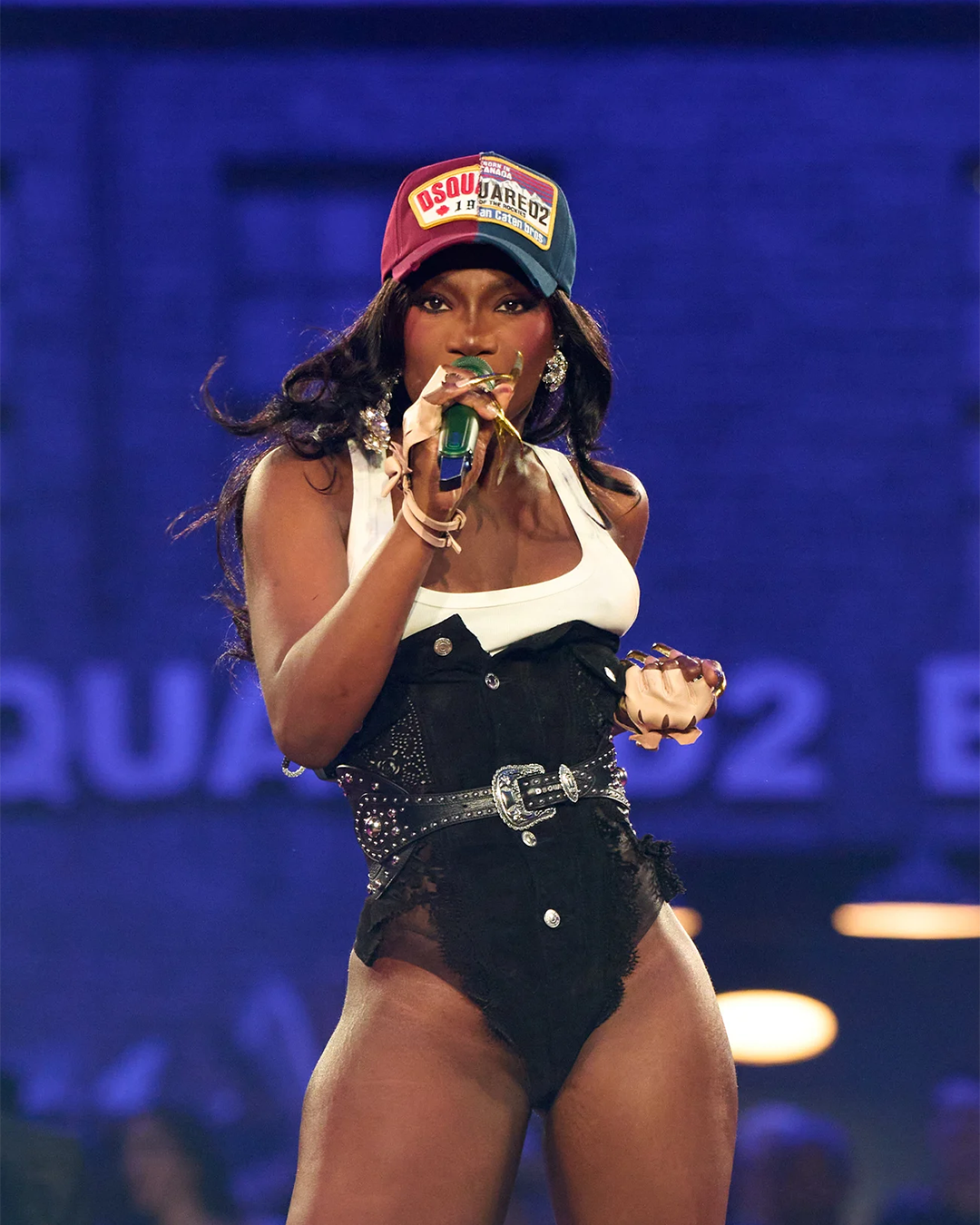
«Aspirational doesn’t need to be exclusive»: an interview with Willy Chavarria The American designer told us about his idea of fashion and his connection with the United States
«My work represents many of the people whose presence is seen as a silhouette and not recognized as a person as a result of racism or discrimination,» Willy Chavarria tells me when we talk about one of the hallmarks of his work: silhouettes. Born in Fresno, California, Chavarria is one of those names whose presence within the fashion system is now an integral part, so skilled that he has managed to become not only part of the fashion industry but almost created one in his own image. «We will undoubtedly show in Milan and Paris when the time is right. For the time being I feel very connected with Los Angels and New York. We have a connection with the communities here» Chavarria says, talking about the choice to show at New York Fashion Week where he is now a regular presence. «I think the US has a wonderful tone of resilience and a will to embrace change in pay that is intensely passionate. I believe our work reflects that and it's an attractive characteristic.» Before inaugurating his eponymous brand in 2015, Chavarria put together a background that is as unique as it is multifaceted: starting with a part-time job at Joe Boxer - a brand specializing in underwear, he went through the cycling apparel brand Voler until landing at Ralph Lauren, where he was hired in 1999 to work on a cycling apparel line.
«For me, it has always been important to have a wide range of prices. I would love to sell at Walmart and Bergdorf's simultaneously,» the designer recounted, talking about his idea of democratic fashion and the possibility of making his brand accessible to a wide audience, going beyond the price point barriers typical of luxury. It is an idea that probably goes back to 2010 when he and David Ramirez opened Palmer Trading Company, the New York store where vintage clothes were available along with those of the in-house label. But if «exclusivity is less exciting than aspiration. And Aspirational doesn’t need to be exclusive» the idea behind Willy Chavarria's work seems to rest deeply on the human side of fashion, as the designer himself recounts when describing the casting process, a key feature of his shows: «Casting usually happens during the creation of the collection. Some looks are even designed with a specific person in mind. Some cast members enter the story later when the collection is being prepped for a show. When the story is very clear for me and my team, we finalize the cast with people who really fit the vibe. The walk, the attitude, the look in their eyes. We cast very much on a soul presence as well as a strong level of confidence.»
A distinct human sense has always been part of Chavarria's values, as in the case of one of the brand's highest-profile moments: the 2018 collaboration with Hummel. «The collaboration with hummel was very focused around a partnership we did with RIFA which is a soccer league made up of asylum seekers, immigrant, and refugee youth» - Chavarria tells me - «we made the uniforms and then sold the uniforms to help support the project.» The same sensibility is present in "Wall St.Love," a visual story inspired by the "what it takes" that characterized New York's financial district in the 1980s and 1990s. Created by Bruce Bennett and Dava Hunter, the shots aim to capture the strength needed to survive in the hostile environment of Wall Street, while the styling reinterprets the formal look of the era in a modern key using even some of Chavarria's own looks - along with those of Maxwell Osborne of AnOnlyChild and Diane Von Furstenburg. «Observing a theory titled “Plato’s Theory” I seem to realize that we are made for One. Same as Love, Life, and Art we as people are designed for each other because nature created us as one» - Bennett recounted speaking about his work - «Attachment, the key insight is that the same principles of attachment are applied to close relationships throughout the lifespan.» A meeting of two different eras of the United States through one of its most famous places, for better or worse. But if the past and present are well delineated, Chavarria's future lies solely in his hands, perhaps «leading a large fashion house.» The important thing, as the designer himself specifies, is that «the WILLY CHAVARRIA collective will always exist. It may evolve over time, but it will be a legacy brand.»





























































